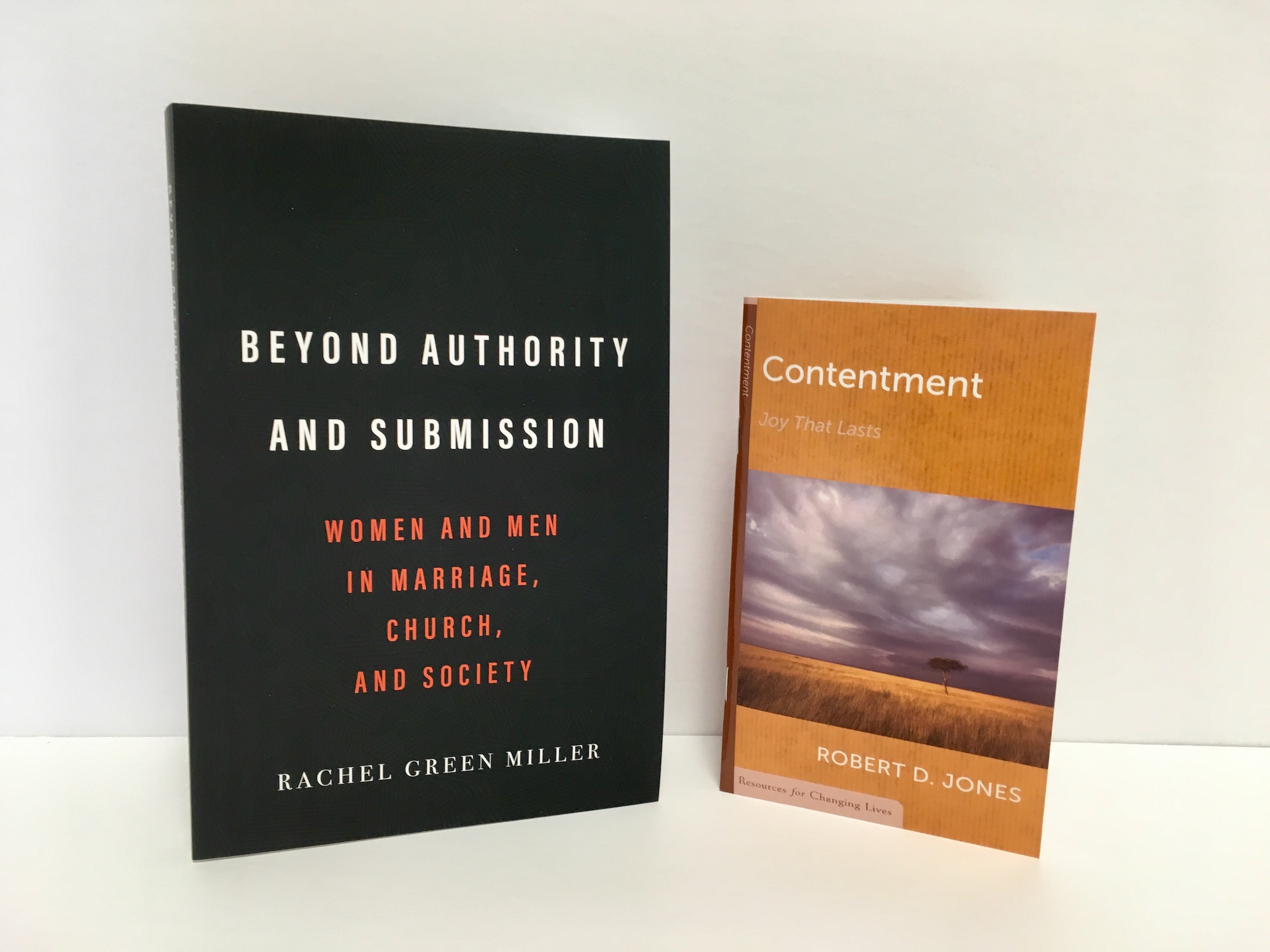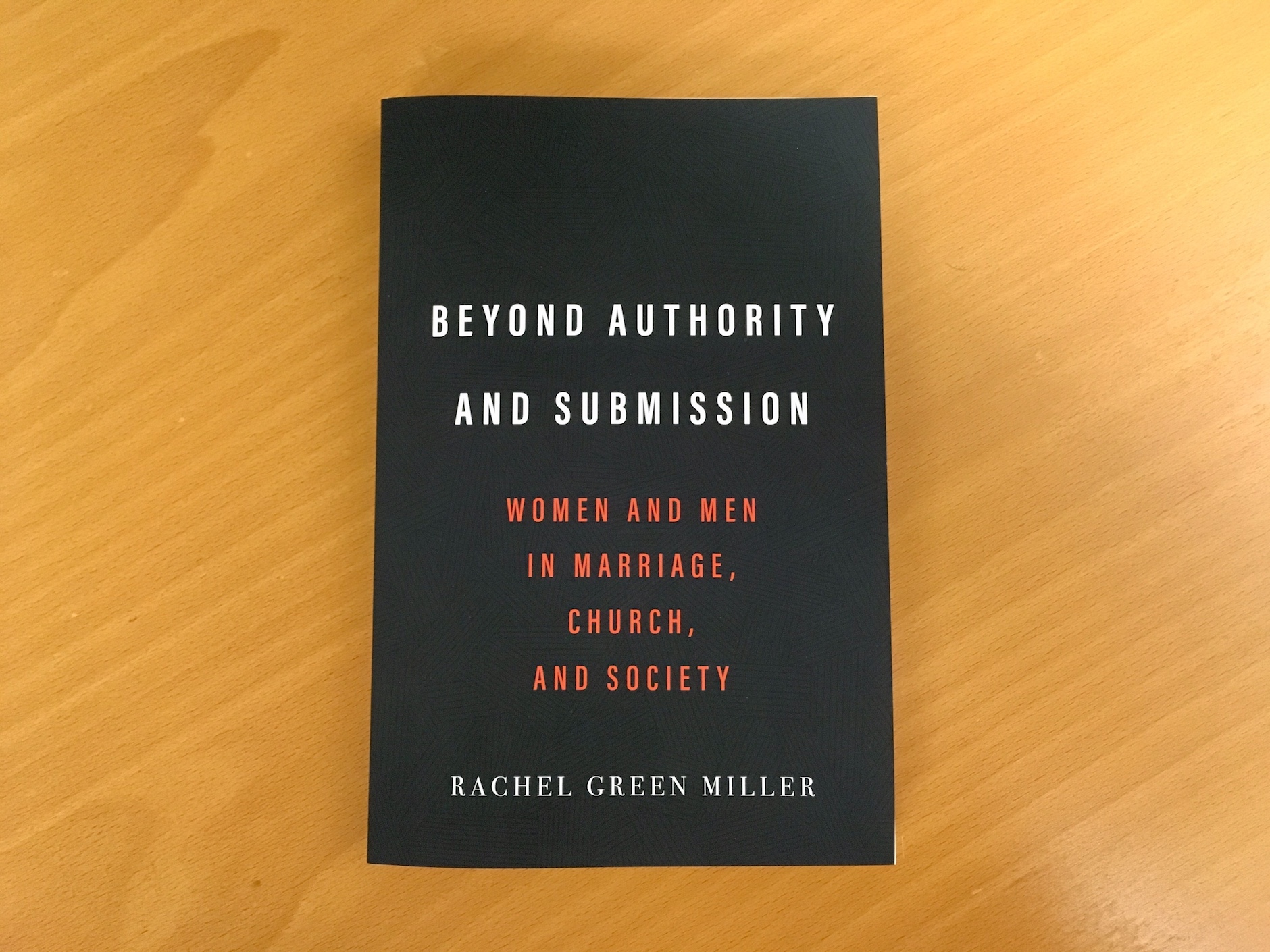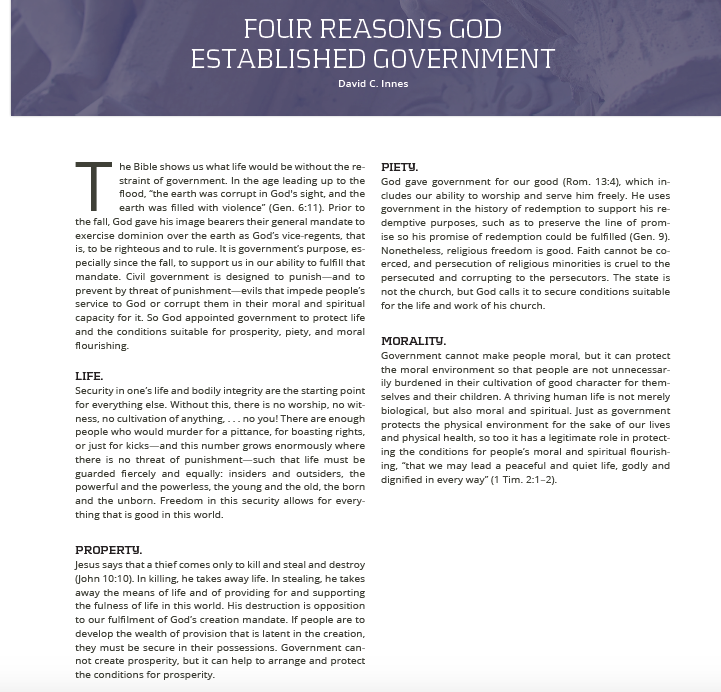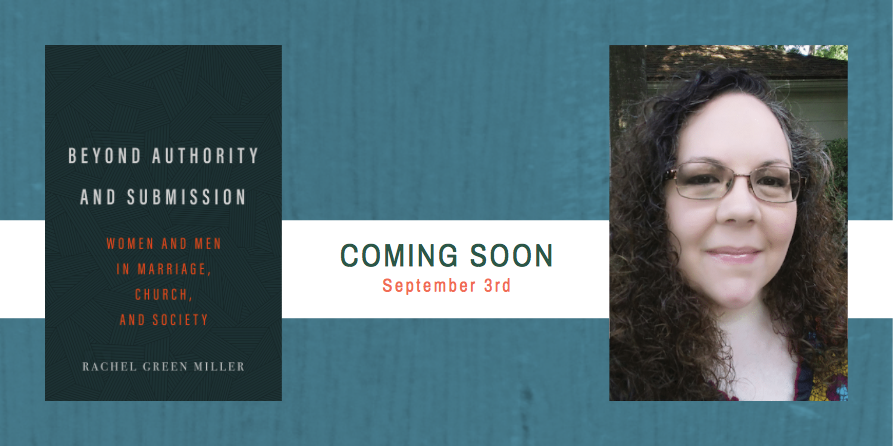We have 2 new releases today!
- Beyond Authority and Submission: Women and Men in Marriage, Church, and Society by Rachel Green Miller
Contentment: Joy That Lasts by Robert D. Jones
40 pages | $3.99 | Resources for Changing Lives series | SAMPLE PAGES
About
Are you in financial trouble or a dead-end job? Single and wishing you were married? Married and wishing it was better? Longing for more security? When life gets tough, contentment is hard to find.
Contentment isn’t found, however—it’s learned, argues biblical counselor Robert Jones. In this pocket-sized exposition and application of Philippians 4:11–13, Jones draws parallels between the reader’s life and the various forms of hardship that the apostle Paul faced. Amid these, we too can experience what Paul experienced: inner satisfaction, peace, and confidence in God’s ability to care and provide.
Quick fixes fail, but Jones shows how, through the gospel, we can learn God-centered contentment each day.
The Author
Beyond Authority and Submission: Women and Men in Marriage, Church, and Society by Rachel Green Miller
280 pages | $17.99 | SAMPLE CHAPTER
Rachel Green Miller argues that what the Bible teaches about women, men, and gender is both simpler and more difficult than we’re often told. Although modern discussions have focused on authority and submission, there is much more to the biblical picture. Examining  common beliefs in the light of Scripture, she draws out important biblical themes that will strengthen our relationship as co-laborers in the kingdom of God and for the good of this world.
common beliefs in the light of Scripture, she draws out important biblical themes that will strengthen our relationship as co-laborers in the kingdom of God and for the good of this world.
Endorsements
“There is a very real danger in our current cultural moment that the polarization that characterizes the political landscape might well come to exert an unfortunate influence on both the rhetoric and the content of discussions among Christians on a number of controversial topics. The temptation to respond to one extreme error by adopting its mirror image is strong but rarely, if ever, correct. And there are few topics in the public square that are more divisive than the relationship between the sexes. It is therefore a pleasure to commend this book by Rachel Miller, which eschews the cheap extremism and bombastic rhetoric that characterize conservative Christian responses to feminism and plots not a middle way but a biblical way through the subjects of authority, submission, masculinity, and the like. She is not interested in making the Bible fit 1950s ideals of what men and women should be; rather, she wants to help the reader to think about what the Bible actually means in the present. This is a refreshingly sane read.”
—Carl Trueman, Professor of Biblical and Religious Studies, Grove City College
“Most of the Christians I know want to be the men and women of God. But what does that mean, exactly? Who’s in charge? Who gets the final say? What does it mean to be masculine or feminine? Enter Rachel G. Miller and her new book, Beyond Authority and Submission. Between these pages, you’ll find a compelling vision for how men and women can work together, unfettered by social and historical expectations. Tracing the broader themes of Scripture, with careful attention to theology and the text, Miller calls men and women alike to live in the fullness of all that God has made us to be.”
—Hannah Anderson, Author, Made for More
“Rachel Miller writes as a conservative who loves Scripture and happily sits under its authority. She calls us to examine ourselves against Scripture, not to remove ourselves from its authority in our lives, and gives us diagnostic tools from the Word to renovate our understanding of men and women in the church, in the home, and in society at large.
Rachel teaches the history of views on sex and gender in secular cultures and then shows us the ways some evangelical teaching on the sexes is built more on secular philosophy than biblical truth. In the end, while historical context sheds great light on the Scriptures, Rachel wins us with Scripture itself. She offers us a well-researched survey of Scripture on biological sex and gender that will inspire and aid readers toward a biblical vision of men and women working in unity and interdependence in God’s kingdom.”
—Wendy Alsup, Author, Is the Bible Good for Women?
“Rachel Miller writes with her characteristic verve and wisdom as she addresses the vexed subject of women and men, a subject where often there is more heat than light. If we are to follow the Bible when it says we are to be slow to speak and quick to listen, then this is one such occasion where we would be wise to listen well. She has made a valuable contribution to the discussion of how we negotiate between the extremes of patriarchy and feminism in the church today. Her arguments deserve to be taken seriously and weighed well as we seek to be faithful to Scripture in our generation.”
—Liam Goligher, Senior Minister, Tenth Presbyterian Church, Philadelphia
“Rachel Miller has done an excellent job in bringing clarity and discernment to a discussion that is often emotionally charged and contentious. Biblically reasoned, confessionally informed, and drawing from the resources of church history, Miller’s work cuts through rhetoric and assumptions to show us that sometimes ideas labeled ‘biblical’ can in fact be loaded with cultural notions. While much of the contemporary discussion about ‘gender roles’ focuses primarily on authority and submission—who is allowed to do what?—Miller shows that there is a need to go beyond this narrow focus to promoting unity, interdependence, and service. Miller invites readers not to ignore or dismiss Scripture but to go deeper in their understanding of its meaning and implications. In Beyond Authority and Submission, many Apolloses have the opportunity to listen and learn from a wise Priscilla.”
—Jacob Denhollander, PhD student, The Southern Baptist Theological Seminary
The Author








